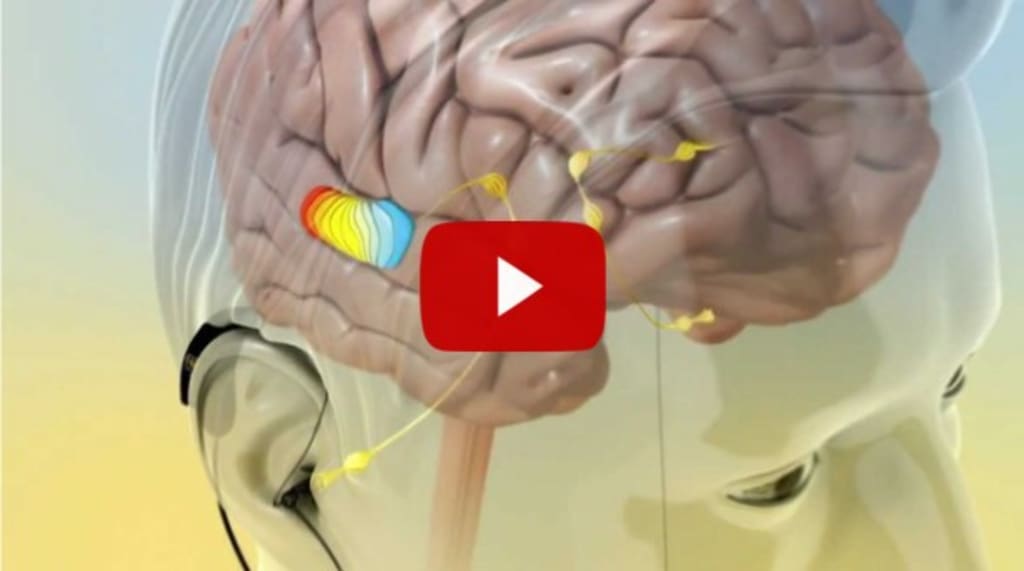What is hearing loss and how to cure it
Hearing loss and tinnitus

Hearing loss refers to a partial or complete inability to hear sounds in one or both ears. It is a common condition that can occur due to various factors and affects people of all ages. Hearing loss can range from mild to profound, and it can be temporary or permanent.
There are different types of hearing loss, the main ones being:
Sensorineural hearing loss: This type of hearing loss occurs when there is damage to the inner ear or the auditory nerve that transmits sound signals to the brain. It can be caused by aging, exposure to loud noises, certain medications, genetic factors, or medical conditions like Meniere's disease. Sensorineural hearing loss is often permanent, as the damaged cells in the inner ear cannot be regenerated.
Conductive hearing loss: Conductive hearing loss occurs when sound waves cannot reach the inner ear due to a blockage or damage in the outer or middle ear. Common causes include earwax buildup, ear infections, fluid in the middle ear, a perforated eardrum, or structural abnormalities in the ear. Conductive hearing loss can be temporary or treatable through medical interventions.
Mixed hearing loss: Mixed hearing loss refers to a combination of sensorineural and conductive hearing loss, where there is damage to both the inner ear and the outer or middle ear.
While there is no universal cure for hearing loss, there are several treatment options available depending on the type and severity of the condition:
Hearing aids: Hearing aids are commonly used to amplify sounds and improve hearing for individuals with sensorineural hearing loss. These devices come in various styles and can be customized to meet individual needs.
Cochlear implants: Cochlear implants are recommended for individuals with severe to profound sensorineural hearing loss who do not benefit from hearing aids. They are surgically implanted devices that bypass damaged parts of the inner ear and directly stimulate the auditory nerve, enabling sound perception.
Bone conduction devices: These devices transmit sound vibrations through the bones of the skull directly to the inner ear, bypassing the outer and middle ear. They are useful for individuals with conductive hearing loss or certain types of mixed hearing loss.
Medications or surgery: In some cases, medication or surgical interventions may be appropriate to treat specific causes of hearing loss, such as infections, tumors, or structural abnormalities.
It is important to consult with an audiologist or an otolaryngologist (ear, nose, and throat specialist) for an accurate diagnosis and appropriate treatment recommendation. They can perform hearing tests, assess the extent and type of hearing loss, and guide you towards the most suitable options for your specific situation. Early detection and intervention are crucial in managing hearing loss and minimizing its impact on daily life.
Tinnitus, the perception of ringing or buzzing sounds in the ears, can have an impact on memory in some individuals. While the exact relationship between tinnitus and memory is complex and not fully understood, there are several ways in which tinnitus can affect memory:
Cognitive load: Tinnitus can create a constant distraction and increase cognitive load, which refers to the mental effort required for processing information. When individuals with tinnitus have to constantly focus on or try to ignore the persistent sound, it can divert their attention and mental resources away from other tasks, including memory-related activities. This increased cognitive load can make it more challenging to concentrate, encode new information into memory, or retrieve stored information.
Sleep disturbances: Tinnitus can disrupt sleep patterns, leading to sleep disturbances such as difficulty falling asleep or staying asleep. Sleep plays a crucial role in memory consolidation, the process by which memories are strengthened and stored. Disrupted or inadequate sleep can impair memory formation and consolidation, affecting both short-term and long-term memory.
Emotional and psychological factors: Tinnitus can cause emotional distress, anxiety, and depression in some individuals. These psychological factors can have a negative impact on memory and cognitive function. When individuals experience heightened stress, anxiety, or negative emotions related to their tinnitus, it can interfere with their ability to focus, concentrate, and recall information, leading to memory difficulties.
Reduced cognitive reserve: Tinnitus, especially when coupled with hearing loss, can contribute to a reduced cognitive reserve. Cognitive reserve refers to the brain's ability to withstand and compensate for age-related changes or neurological damage. When individuals have lower cognitive reserve, they may be more susceptible to cognitive challenges, including memory problems.
It's important to note that not everyone with tinnitus will experience memory difficulties, and the extent of the impact can vary from person to person. Some individuals are able to effectively manage tinnitus-related memory challenges by implementing coping strategies and seeking appropriate support.
If you are experiencing memory difficulties or concerns related to tinnitus, it is advisable to consult with a healthcare professional who can assess your specific situation and provide guidance. They may recommend strategies such as stress management techniques, sleep hygiene practices, cognitive exercises, or referral to specialists such as audiologists or psychologists who specialize in tinnitus management.





Comments
There are no comments for this story
Be the first to respond and start the conversation.